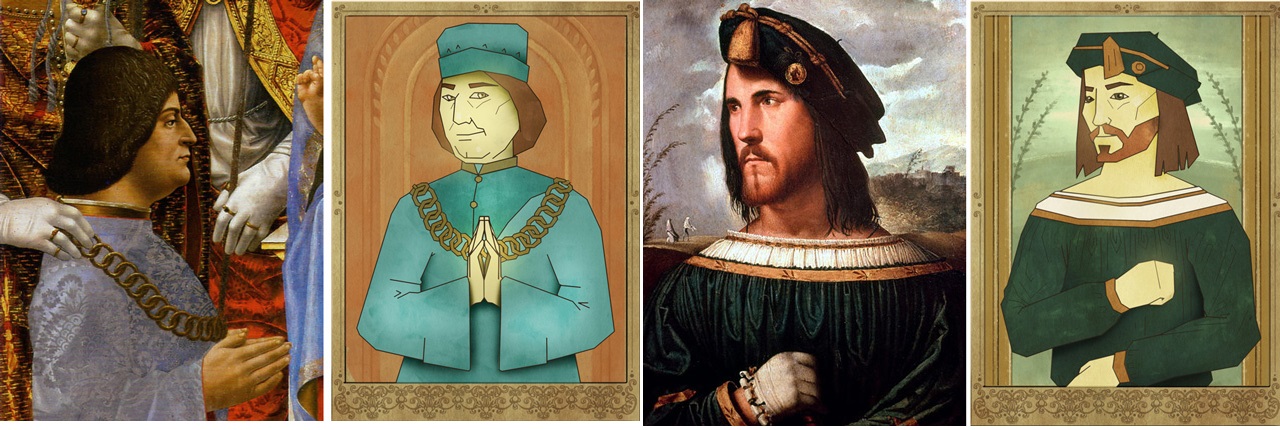 How can games be used for teaching? Can one learn by playing? These questions have been my personal obsession for the last three years (see e.g. Teaching with Videogames).The theme of teaching through games is widely discussed by designers and critics, and there are many development groups working on this theme.
How can games be used for teaching? Can one learn by playing? These questions have been my personal obsession for the last three years (see e.g. Teaching with Videogames).The theme of teaching through games is widely discussed by designers and critics, and there are many development groups working on this theme.
As argued in detail by Koster, actually one always learns something while playing, for a vast class of the diverse universe of experiences we call gaming. Quoting Koster:
Fun is just another work for learning under optimal conditions.
Now in the case of Genio the theme of study is the emergence of the Renaissance, focusing on its very origin in mid 15th century Italy. I suggest to distinguish two learning processes that occur in games during game play:
Direct training. This is the action and management information gained being immersed in the game play loop.
Reference acquisition. This is the information that the game play world presents, as constituting the world (first grade reference) or as pointers from the world (second grade reference).
In this blog post I apply the distinction above to the Genio game, arguing that as a simple strategy game it is an ideal setting for teaching in both indirect training and by reference acquisition.

